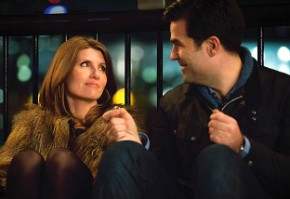Rom-com in the flesh

"Why Harry Wouldn’t Meet Sally in 2013” was one of many headlines announcing the death of the romantic comedy. The notices extended well into 2014 with articles on “Who Killed the Romantic Comedy?” and “The Romantic Comedy Is Dead.”
Some would suggest that romantic comedy had it coming. The genre was formulaic and relied on outdated ideas about finding love. We are better off without the stereotypes about men and women that it perpetuated. Someone should have eradicated it years ago, like polio.
Enter two new romantic comedies: Trainwreck, from Amy Schumer and Judd Apatow, and Catastrophe, Sharon Horgan and Rob Delaney’s TV series on Amazon.




